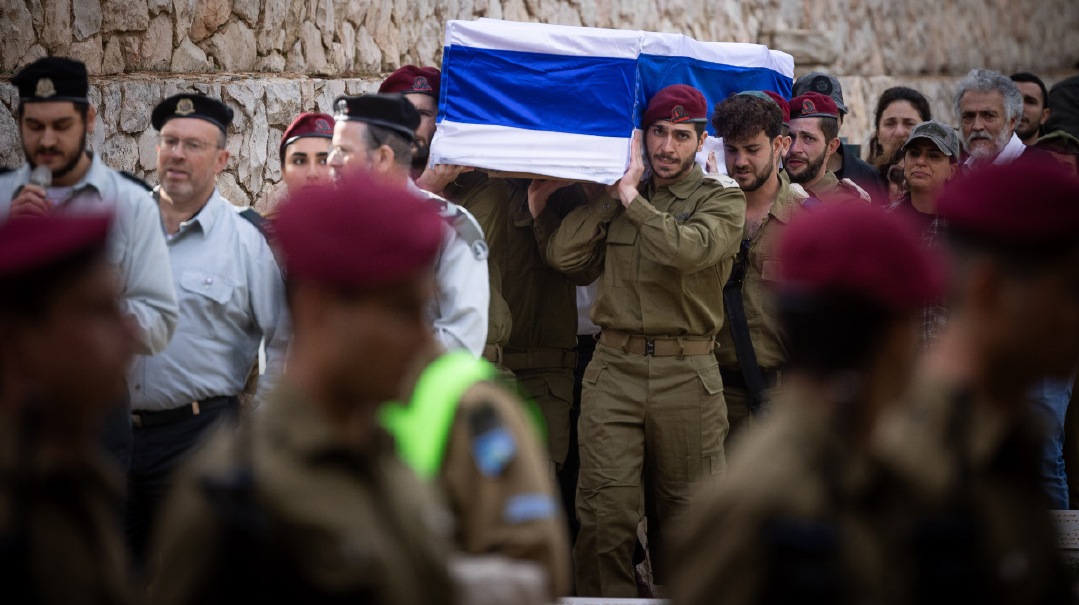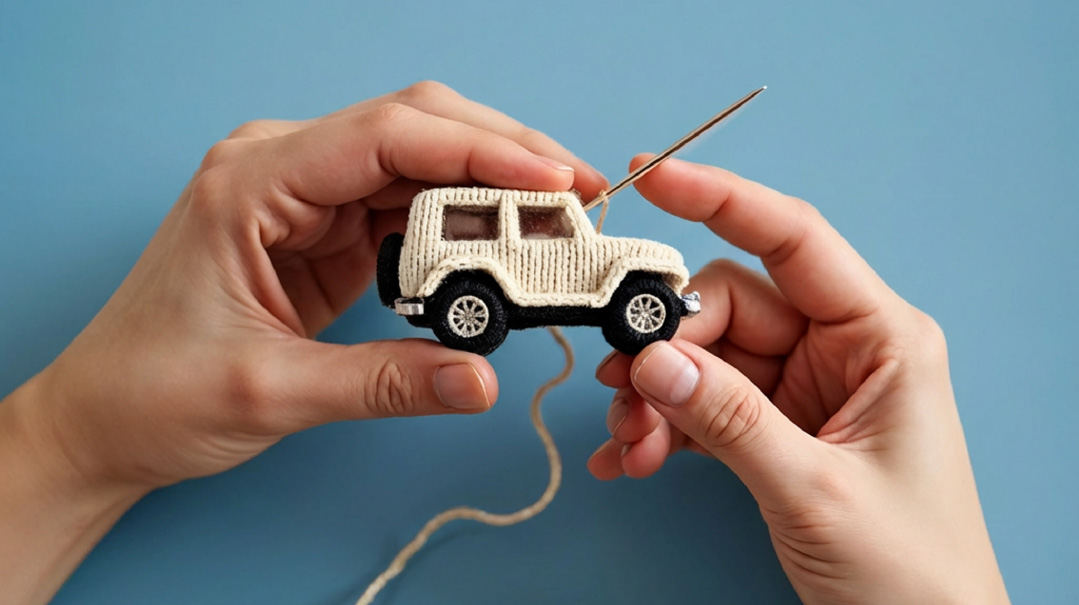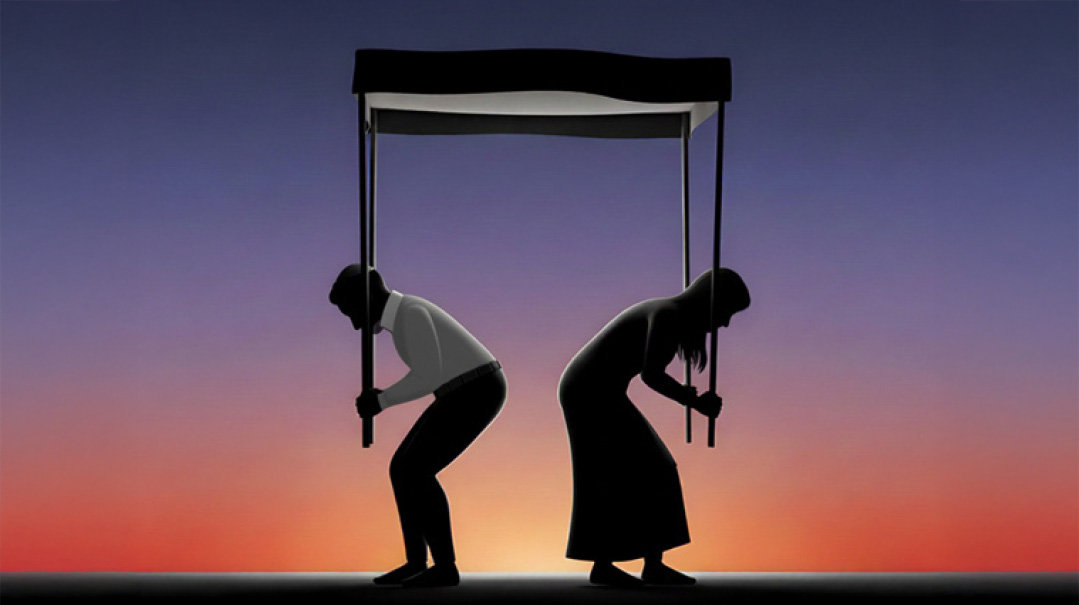These Are My People

We all sing the same song. We all dream the same dream and hope for the same conclusion to our pain

Photo: Flash90
Abit less than a year ago, a cousin passed away — a survivor who’d lost his entire immediate family during the Holocaust yet maintained his boyish irreverence for authority and feisty zest for life through many rich, full decades of rebuilding. His twinkling eyes and raspy voice had been part of the wallpaper of my childhood; he was one of those figures who instinctively came to mind when I heard the word “extended family.”
While his own wife, children, and grandchildren were his pride, joy, and revenge, he fiercely treasured all his relatives, treating my kids to “buy out the candy store” jaunts every time he visited Israel and taking real pride in our growing family’s achievements. When I learned that he was gone, it was hard to believe that such a spirited person couldn’t subdue the Angel of Death.
When the time came, I settled at my computer in my Jerusalem apartment and clicked the link to the levayah at Shomrei Hadas in Boro Park.
Three, maybe even four generations of people filled the chapel. On the men’s side were black hats, demure suits, a few rebbishe silk frocks and round hats, an occasional blue button-down shirt. On the women’s side were dark colors, conservative sheitels along with some beanie-fall combos, puffer coats for the younger generation and classic wool coats for the older women.
The hespedim were the expected mix of Torah insights and choked family memories. There were smatterings of Yiddish and mentions of Boro Park, Miami, and the heim in Galicia. A reference to a family zemer harking back to the Dinover chassidic court. The tale of a stubborn, savvy business decision. A funny episode that evoked gentle laughter, a quote that encapsulated this survivor’s faith along with his pain.
The hespedim came to an end and the people filed out of the room. I studied each familiar face and dabbed at the stream of tears wetting my own. Why was I so emotional? Final goodbyes are always wrenching, and the levayah signified in some ways an end to an era, but this had been a life well lived with a beautiful legacy left behind.
Over the next few hours, I tried to dissect the intense emotions that had gripped me as I’d watched the screen. I now live far away from the brick Boro Park home of my grandparents. The Jerusalem stone and sun that I see from my window, the hilly streets I climb, the Middle Eastern accents and attitudes that fill my ears and my life — they form a reality very different from that of the people who filled Shomrei Hadas.
But there was an aching familiarity in that crowd of mourners. My field of view may now be very distant from theirs, but we grew up nurtured by the same values, revering the same tzaddikim, hearing the same jokes, singing (or trying to sing — one branch of the family is tone-deaf) the same family songs. I still don’t know exactly how to express it, and I’m not sure I could ever relay it to my Sabra children — but if I could put words to that pang I felt, the words would be “these are my people.”
These are my people, and this is why we cry.
L
ast week, a cousin was killed in Gaza — a young husband and father with unusual intellectual gifts, sterling principles, and a humble, unpretentious soul. I knew him only by name and face; he married into a branch of my extended family whose children I meet mainly at simchahs.
But we are very firmly and decidedly family, with shared ancestors, shared attributes, and a shared present. This branch of the family made aliyah from Queens. In some ways, they became Israeli; in other ways, they held fast to their roots. (Which leads me to wonder, is that not Israeli? Most Israelis do have immigrant roots and most have figured out ways to integrate the gifts of their past into the miracle of their present.) The dreams and hopes and values of our shared ancestors are alive and robust in their home.
They are not the only branch to make aliyah; several others have made similar decisions and many of my cousins were drafted to the front on October 7. Since then, the entire extended family — in homes, offices, cars, and shtiblach in Brooklyn, Israel, Europe — has been murmuring their names as we visualize their faces and daven for their welfare.
Last week, when the Baruch Dayan HaEmes notice popped up on my office computer, I yelled “NO NO NO” into the glass-walled room. This was not an established patriarch with decades of accomplishments, legions of grandchildren, and a retirement home in Florida. This was a devoted young husband juggling the daily family-davening-parnassah-learning routine. A father of tiny children who still need him to make sandwiches and drop them off at playgroup, whose baby who was just a week old when he was called to the front and who will never know the security of being cradled in her father’s strong arms.
It took some time to find the site of the levayah in the darkening Mount Herzl military cemetery. Finally I saw a knot of people that steadily grew into a crowd, then an ocean, of humanity. As we waited for the previous levayah to conclude, I took in the hundreds of faces. They were not the familiar figures of that Boro Park levayah 11 months earlier. They formed a very different picture.
There were IDF soldiers in berets, civilians wearing kippot of every fabric and color, and some men whose heads remained uncovered. Among the women, I saw boots and sandals and sneakers, long flowing skirts and jeans, backpacks and baby carriers. As they exchanged hugs and greetings, I heard some speaking perfect American English, others talking in lyrical Hebrew, and then there was that curiously fluid mix that typifies children of immigrants. But all the words had the same flat undertone of can you really believe that here we are making conversation while waiting to bury this beloved young son, brother, husband, and father.
The sun sank lower in the sky and the crowd moved forward in a subdued, rhythmic procession until we reached a tented area at the appointed gravesite. Then came the familiar words, albeit in a clipped Israeli accent: “Yoshev b’seter elyon.” The levayah had begun.
Every Jewish levayah follows the same pattern, but as a military event, this one had a decided formality. An authoritative voice called up each speaker with perfect diction. A commander in beret and uniform paid official respects. The family’s soft whimpered words of farewell were offset by military commands as an honor guard followed its protocol of standing at attention, standing at ease, and saluting. The last of the hespedim faded into the night, and everyone was instructed to prepare for the singing of the national anthem. Then, as its strains died down, the crowd began — without any instruction — to sing Ani Maamin.
The sky was black now and Mount Herzl echoed with the muted sounds of grief and faith. I took another look at the crowd of people who’d come from near and far, who’d left families and jobs and reputations and security to heed the ancient call of Lech Lecha and find their future in the Promised Land, now rocking with sorrow as they faced the most devastating price a Jew could pay for that decision. And while I wasn’t sure I shared a common lexicon or family background or dress code with all these people, I can tell you this: We all sing the same song. We all dream the same dream and hope for the same conclusion to our pain. These are my people.
These are my people, and this is why we cry.
—Shoshana Friedman
Managing Editor
(Originally featured in Mishpacha, Issue 991)
Oops! We could not locate your form.







